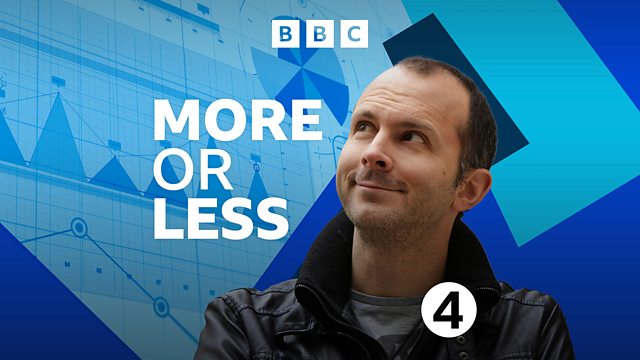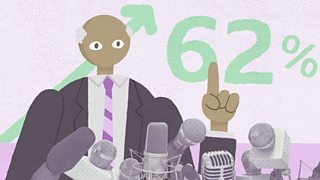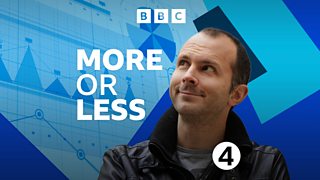
Are Food Links to Cancer Overstated? - A Dollar a Day - Reading Scores - Encryption
Tim Harford examines the science on lifestyle links to cancer. Plus how little is a "dollar a day"? We also look at child literacy rates and investigate how secure computer encryption really is.
Are Food Links to Cancer Overstated?
Hardly a week seems to go by without news about the discovery of a link between cancer and something we eat or drink.
Epidemiologists - the scientists who study factors that influence the occurrence of disease - have spent decades trying to identify some of the causes of cancer.
The most notable success in this quest was the discovery of a strong link between smoking and lung cancer, uncovered by Sir Richard Doll in the early 1950s. Since then, scientists have found links between cancer and some of the food and drink we consume but the links have not been as powerful as the link between smoking and cancer.
Michael Hanlon, science editor of the Daily Mail, thinks that the public is being given a false impression. He argues that the discovery of relatively trivial risk factors is often reported to the public as if it were as important as the link between smoking and tobacco. He joins presenter Tim Harford in the studio to debate the issues with Professor David Shuker, one of the expert panel members advising the World Cancer Research Fund on a recent study.
Professor Shuker spent years at the Open University researching the link between the link between red meat consumption and cancer.
A Dollar a Day
Just over 18% of the world's population lives on less than a dollar (48p) a day. Anyone living on less than a dollar a day is regarded by international development specialists as living in extreme poverty.
"A dollar a day" sounds like a simple measure but, as our reporter Mukul Devichand discovers, it can get complicated. He talks to Martin Ravallion, the economist behind the original concept at the World Bank, and to Michael Ward, a former Cambridge dean and previously a principal economist at the World Bank.
Mukul discovers that a dollar does not always mean a dollar.
Reading Scores
"Study shows fall in child reading skills." You might have seen or heard the reports in the last week about an international study called Pirls - the Progress in International Reading and Literacy Study.
Pupils in England and Scotland have apparently been slipping down the Pirls league table. Scotland went from 14th in 2001 to 21st in the latest survey, whilst England went from 3rd to 15th. But a fall in the league tables does not necessarily indicate a decline in absolute standards.
More or Less listener Mike Cummins wondered therefore whether the headlines claiming a drop in reading ability were justified.
Encryption
The recent loss of two computer discs containing the personal data of millions of families in receipt of Child Benefit is regarded as a scandal.
The fact that the data was protected only by a password rather than encrypted has compounded the potential risks to privacy.
But how safe is computer encryption? One of the world's top cryptographers, Adi Shamir, has recently identified a flaw in the standard type of cryptography known as public key cryptography,
According to Professor Shamir, a small mathematical error in the system would make it possible for a hacker to break the encryption code. Such an error could occur due to a careless mistake or deliberate action by a computer programmer.
Presenter Tim Harford talks to Paul Kocher, president and chief scientist of the encryption company Cryptography Research in San Francisco about the potential threat that a subtle mathematical error could pose to our information security.
Last on
Broadcast
- Mon 3 Dec 2007 16:30Βι¶ΉΤΌΕΔ Radio 4
Just how reliable is our intuition? Find out with The Open University
OU Connect: Put your brain to the test with our new mind-bending probability problems!


